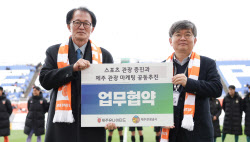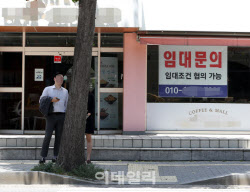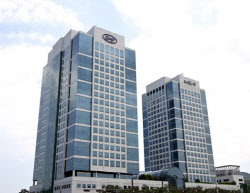2024년 06월 18일 화요일
Press Statement at Conclusion of IMF Article IV Consultation Misson
Ajai Chopra
Asia and Pacific Department, IMF
November 14, 2000
----------------------------------------------------------------------
An IMF mission concluded its discussions with the Korean government on November 14. The mission met with officials in various government ministries, the Bank of Korea, and the Financial Supervisory Commission and the Financial Supervisory Service, as well as with research institutes, academics, financial institutions, labor unions, and market participants. The mission them will prepare a report for discussion by the IMF"s Executive Board in late January 2001.
The three-year stand-by arrangement with the IMF expires on December 3, 2000. Looking back, a tremendous amount has been achieved over these three years. First, macroeconomic fundamentals have improved sharply-growth has been strong, inflation is low, and foreign reserves are at record levels. And second, a wide range of structural reforms have inreased the market orientation of the economy; these reofrms will yield benefits for years to come. The institutional framework for restructuring the corporate and financial sectors is largely in place and major strides have been made in addressing the deep-seated problems of the corporate and financial sectors.
Despite these accomplishments, market sentiment about Korea has deteriorated in recent months. The decline in confidence is largely related to market perceptions that corporate and financial sector restructuring has been slow. A large portion of the corporate sector is still saddled with weak cash flow and poor profitability. Indeed, the divergence between strong macroeconomic performance on the one hand, and weak sentiment and poor microeconomic performance in many sectors on the orther, is striking. Moreover, the uncertain domestic outlook for restructuring has been exacerbated by the simultaneous weakening in the external outlook.
Recognazing that slow progress on the struntural side will increasingly exert a drag on the economy, the government recently announced a Second Round Restructuring Plan that has provided new impetus to reform efforts-witnessed, for example, by pushing weak banks to restracture and recapitalize; the deision to request more public funds for restructuring; banks" tougher attitude toward companies such as Wooband Construction, Dong-Ah Construction, and Daewoo Motors; and the decisions on the 52 nonviable companies, These are very positive steps, but many challenges still remain. It is these challenges that have been the focus of the mission"s discussions.
The need for further concrete restructing progress and tangible results-principally the exit of nonviable firms and esser sales-has now become imprerative to ensure that the remaining problems do not jeopardize what has already been achieved and adversely affect Korea"s long-tern capacity to grow. Although the economic situation has weakend over the past few months and created new problems for policy makers, it also provides new opportunities. Tangible progress with restructuring, especially in some of the high profile cases, could set in motion a virtuous circle of improved confidence, higher economic growth, and support for further restructuring. Indeed, the closure of nonviable companies may be a prerequisite for the growth of other companies, as these "zombie" compaines are eroding the profit margins and crowding out credit to viable companies.
Near-tern outlook : Growth in 2000 is forecast to be 9½percent, with a current account surplus of about $10 billion (2 percent of GDP). There are considerable uncertainties about the projections for 2001 related to the domestic environment and restructuring efforts, and the weakening of the external environment. In the short run, a pick up in the pace and depth of restructuring will result in higher unemployment that could dampen confidence; the risks associated with inaction, however, are likely to be greater. In the mission"s baseline scenario, growth is projected to slow to 5½percent in 2001, but there are downside risks to this forecast. The current account surplus is expected to narrow to about 1¼percent of GDP in 2001.
Corporate restructuring : Korea"s record on corporate restructuring includes a number of significant accomplishments. Nevertheless, much of the corporate sector remains highly leveraged by international standards and continues to suffer from low profitability indicating that more needs to be dons. First, the focus of attention should now shift towards greater reliance on count-supervised nsolvency. In pending cases, including new court-supervised cases among the recent list of 52 companies, reorganizations and liquidations should be implemented as quickly as possible. Further insolvency reform will therfore be key. The government"s proposal on "pre-packaged" reorganizations is an essential step, and should be complemented by efforts to remove other impediments to more efficient and rapid resolutions. Second, there has been little concrete progress with the twelve Daewoo affiliates in workout programs. Creditors need to resolve the fate of these Daewoo affiliates quickly before more value is destroyed. Non-viale affiliates or affiliated "bad companies" should immediately be put into receivership or bankruptcy. Potentially viable portions of Daewoo Motors and certain other affiliates, should be sold as soon as possible. And third, the governments" October 2000 Corporate Governance Improvement Plan-which covers issues such as improving the cumulative voting system, a further strengthening of minority sharebolder rights, qualifications of outside directors, and transactions with related parties-is welcome. The Plan should be implemented without delay as improved corporate governance is essential to shift corporate behavior away from debt-financed expansion toward an emphasis on corporate profitability and financial resilience.
Financial sector restructuring : Major steps have been taken to strengthen the financial system, but more needs to be done before soundness is restored. The problems that remain in the financial sector are now largely the result of contnuing weaknesses in the corporate sector. Banks will therfore need to take an aggressive attitude in dealing with potential losses from financially weak firms, and their recent actions in this area are encouraging. Furthermore, a market driven corporate restructuring process will only be truly feasible if it is led by sound and privately owned banks-the privatization process cannot be done rapidly but it is important that a start be made as soon as the market allows. Turning to specific issues, first, an immediate priority is to complete and implement the rehabilitation of the six banks that have recently submitted restructuring plans. Second, it may be prudent to increase the currently planned W 40 trilion of public funds to allow for contingencies, but to be provided only to promote further restructuring. The replenishment should be accompanied by a agreater degree of transparency in the use of public funds. And third, the authorities need to be vigilant about the credibility of the supervisory framework; it will be critical to resist pressures for forbearance and ensure operational autonomy of the financial supervisory authorities.
Capital market development : On the issue of a possible "credit crunch," it is appropriate that banks and capital markets(especially the ond market) are being more selective in the companies to which they provide financing, and are not providing new financing to companies that are not creditworthy. Although it is possible that banks and investors could become too risk averse, in the mission"s view this has not occurred in any substantial way-if it has, it is likely to be temporary and should be selfcorrecting. The Korean financial system requires an efficient and deep capital market. Toward this end, the government"s policy should be guided by the principle that its interventions in capital markets should be minimal and that any measures should be consistent with encouraging development of markets so that they will be able to grow and function effectively without government participation.
Macroeconomic policies : Building on the strong performance in 2000, fiscal policy in 2001 should be broadly neutral on a cyclically adjusted basis. The 2001 budget implies a consolidated central government deficit of 0.2 percent of GDP, which is consistent with the mission"s view on the appropriate fiscal stance. However, if adverse shocks lead to a sharper than expected economic slowdown, there is scope to loosen fiscal policy to mitigate the negative impact. Turning to monetary policy, inflation has picked up mainly because of supply shocks, most nocably the run-up in oil prices, rather than demand side pressures. With growth moderating, demand side pressures are not expected to reemerge over the next year. Under these circumstances, monetary policy should be neutral, but vigilant. More specifically, although the first round effects of the oil price shock could be accommodated, monetary policy should stand ready to choke off any second round impact on inflation. Good progress has been made in operating the inflation targeting framework, but additional steps are needed to improve the accountabllity and transparency of monetary policy and the inflation targeting framework. Continuing foreign exchange market liberalization, along the lines of the Second Stage of Foreign Echange Liberalization, is welcome as it will facilitate external transactions of Korean businesses and individuals and contribute to the development of efficient and liquid financial markets.
******
Korea"s achivements over the last three years have been impressive, and the bold policies implemented by the government have transformed the landscape for economic decision making. The autorities recognize that the reform and restructuring process must be continued to ensure that the gains endure and to improve the efficiency of the economy. This is expecially important because of the new demands and pressures that will arise with closer economic cooperation with North Korea. The basic framework for restructuring is in place, and, looking ahead, the key issue remains implementation and ensuring a stronger role for markets to drive the process. In particular, strong banks need to take the lead in forcing operational restructuring. This restructuring will be an ongoing, multiyear process-along the way, however, tangible progress is of paramount importance.
주요뉴스
저작권자 © 이데일리 - 무단전재, 재배포 금지
많이 본 뉴스
- 1 "월 3천만원 약속한 적 없어"...백종원 신고한다는 점주들에 반박
- 2 "한 달에 100만원 벌어"…'연돈' 점주들, 백종원 신고한다
- 3 감스트·외질혜·남순, 女 스트리머·BJ 성희롱…그 후[그해 오늘]
- 4 “군대 급식 때문에 가정불화, 신고합니다”…무슨 일?
- 5 “의료 파업 때문에”…주장한 황보라에 의협 “명백한 허위”
- 6 합참 “오늘 오전 북한군 수십명 MDL 침범…경고사격에 북상”
- 7 “임용도 안 된 게” 기간제 교사 넘어트려 뇌진탕…10대 男 ‘유죄’
- 8 마스터키로 침입, 잠든 투숙객 성폭행한 호텔 직원
- 9 "추억의 장소" 63빌딩 '아쿠아리움', 39년 만에 문닫는다
- 10 오늘 전국 의사들 여의도 집결..의협, 총파업 가두행진


![월드컵까지 따냈다...스포츠산업 '생태계 파괴자' 된 빈살만[글로벌스트롱맨]](https://image.edaily.co.kr/images/Photo/files/NP/S/2023/11/PS23110500115t.jpg)

![[포토] 폭염 속 휴식취하는 건설 근로자](https://image.edaily.co.kr/images/Photo/files/NP/S/2023/08/PS23080100718t.jpg)






![[포토]손경식 경총 회장 건배사](https://image.edaily.co.kr/images/Photo/files/NP/S/2024/06/PS24061801100t.jpg)
![[포토] 굳은 표정 보이는 박세리](https://image.edaily.co.kr/images/Photo/files/NP/S/2024/06/PS24061800970t.jpg)
![[포토] 총궐기대회 참석한 의사들](https://image.edaily.co.kr/images/Photo/files/NP/S/2024/06/PS24061800807t.jpg)
![[포토]혜리 '예쁘네'](https://image.edaily.co.kr/images/Photo/files/NP/S/2024/06/PS24061800637t.jpg)
![[포토] 정부-의료계 갈등에 환자만 고통](https://image.edaily.co.kr/images/Photo/files/NP/S/2024/06/PS24061800360t.jpg)
![[포토] '이것이 진짜 하늘'…지하 동물원서 지상 동물원으로 옮겨진 백사자](https://image.edaily.co.kr/images/Photo/files/NP/S/2024/06/PS24061701072t.jpg)
![[포토] 새끼 키우는 어미제비](https://image.edaily.co.kr/images/Photo/files/NP/S/2024/06/PS24061700946t.jpg)
![[포토]우원식 의장, "국민은 여야 함께 국회 운영 모습 바람직하게 여겨"](https://image.edaily.co.kr/images/Photo/files/NP/S/2024/06/PS24061700711t.jpg)
![[포토]병원 나서는 환자](https://image.edaily.co.kr/images/Photo/files/NP/S/2024/06/PS24061700622t.jpg)
![[포토]그림 같은 백두산 천지 모습](https://image.edaily.co.kr/images/Photo/files/NP/S/2024/06/PS24061700555t.jpg)
![[포토]김재희,페어웨이로 가라](https://spnimage.edaily.co.kr/images/Photo/files/NP/S/2024/06/PS24061600446t.jpg)
